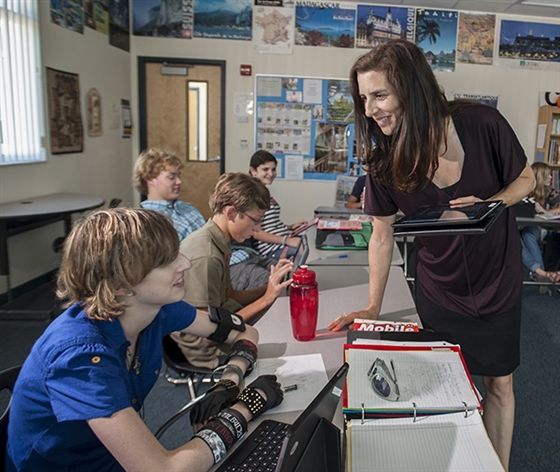

Top Seven Ways to Support Your Student
Source/Author: Mike Murphy, Headmaster
August 21, 2015
For the past 18 years, eight at my former school and 10 at Shorecrest, I have had the honor of interviewing the rising senior class before they begin their twelfth grade year. One of my favorite parts of the visit with each senior is learning about the adults who have had the most significant positive impact on their lives.
During pre-planning this year, I shared with teachers the ten behaviors and attitudes the students appreciate in the most influential teachers. The words from the seniors are great reminders to the faculty and to me about what sticks with our students.
During pre-planning this year, I shared with teachers the ten behaviors and attitudes the students appreciate in the most influential teachers. The words from the seniors are great reminders to the faculty and to me about what sticks with our students.
A Shorecrest teacher will observe anywhere from 15 to 85 children and their families during the course of a year. They gain a broad perspective on the behaviors and mindsets that the most successful students and their parents exhibit. So, in return I asked faculty for observations they may have for parents who wish to support their sons and daughters.
Listed below are some of the suggestions from the teachers from Alpha - twelfth grade. I have tried to summarize their comments to make them fit for as broad an audience as possible. I have also limited the list to the top seven, and next week I will add a few more ideas. I trust these ideas will make sense to you - they are not revolutionary. The faculty and I have observed that parents and guardians who consistently employ the following behaviors and attitudes have successful children, teens and young adults.
- Encourage routines. Children could establish routines that minimize thinking about where they left their books, iPad and homework. Some children benefit from putting out the clothes they plan to wear the coming day. Some do better when homework time is scheduled. Routines minimize unnecessary stress.
- For the youngest children, establish an early bedtime. An appropriate amount of sleep makes a positive impact on performance. Older students could develop routines to ensure they have adequate sleep.
- Minimize video games and other media that do not contribute to the improvement of academic, creative, physical and social-emotional skills.
- Encourage self-regulation. Lawrence Sternberg in his book "Age of Opportunity" highlights the importance of having people develop habits of mind that help regulate our behavior in positive and productive ways. Help your children find positive ways to self regulate. Teaching children to be aware of their choices and the resulting consequences can lead to people who can regulate their behavior.
- Teach your children how to speak to adults. Have conversations at home. Expect your children to interact with your adult friends. Encourage children to go to teachers for help. Let them learn to interact with adults.
- Help spark a love for reading and learning. Read and explore their interests and expose them to your interests. For older students, make sure they have read their assignments thoroughly. Skimming and speed-reading for many subjects are not advisable. Encourage your children to come to class prepared to ask questions and to contribute.
- Let children learn how to stand up for themselves, learn how to overcome adversity and take risks. The following quote from an experienced Upper School colleague summed up the thoughts of many teachers. “Please give your student(s) a break. Learning (regardless of the subject) is a process that involves varying degrees of failure as well as success based upon the likes/interests, skills, and physical and psychological makeup of the individual child in question. Allow yourselves and your child to accept this process while still maintaining high, long-term expectations. Also, please do not equate your student's self worth (in your own mind or to your child) with his/her academic achievements and/or failures. It is high school and they are children; please allow and encourage them to find joy in both.”
With support and respect for the hard work that is parenting,
Cheers!
Mike
























